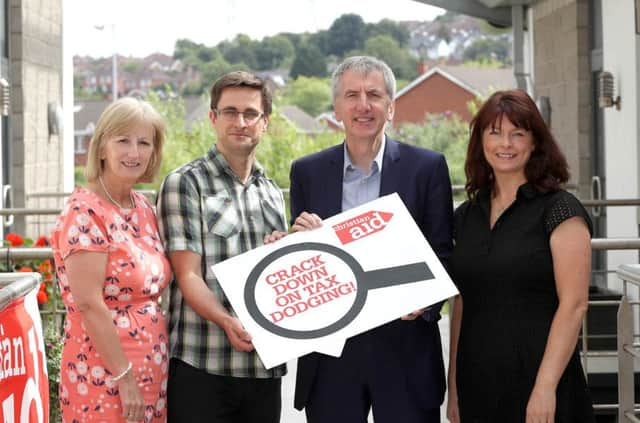Making progress on avery taxing issue


It is a view shared by a growing number of UN bodies, financial institutions and NGOs.
The IMF recently estimated that developing countries lose between US$100 - US$300 billion each year as a result of tax dodging.
Advertisement
Hide AdAdvertisement
Hide AdThis money, if it were available to poor countries’ governments, would be able to pay for essential public services like healthcare and education for their citizens.
Since 2008 Christian Aid has been campaigning for greater corporate transparency to ensure that companies pay a fair amount of tax on their profits.
A global network of tax havens, many of which are UK overseas territories and crown dependencies, offer companies an easy way to cover up their tracks and shift profits to a low-tax jurisdiction rather than paying taxes where the bulk of their economic activity actually takes place.
More recently, Christian Aid have turned their attention to procurement by councils and other public bodies in order to put pressure on companies to be ethical tax payers.
Advertisement
Hide AdAdvertisement
Hide AdThe public procurement market in Northern Ireland is worth £2.6 billion and Christian Aid believes that companies bidding for lucrative tax-payer funded contracts should be expected to be ethical tax payers themselves.
The ‘Sourced’ campaign asks public bodies to incorporate tough tax compliance questions, into their existing procurement processes for assessing which companies to award contracts to.
These questions are currently mandatory for UK Central government contracts over £5 million, but optional for other public bodies.
One of the first councils in the UK to sign up to use the tax compliance questions was Belfast City Council, since then a further four councils have agreed to use the questions, Lisburn and Castlereagh, Antrim and Newtownabbey, Ards and North Down and Fermanagh and Omagh.
Advertisement
Hide AdAdvertisement
Hide AdAfter successful lobbying by Christian Aid, the Central Procurement Directorate (CPD), which is part of the Department for Finance has also agreed to the campaigns asks and will use the new tougher tax compliance questions.
Credit goes to Finance Minister Máirtín Ó Muilleoir and his officials on this issue, and also to his predecessor Mervyn Storey, who also met with Christian Aid in the early stages of the campaign.
It’s very positive that Northern Ireland public bodies are sending a strong message that tax dodging, which hurts poor communities most, is not welcome here.
Christian Aid’s campaign is not anti-business, in fact small and medium-sized businesses often lose out to multinationals since they are not able to take advantage of a global network of subsidiaries based in tax havens.
Advertisement
Hide AdAdvertisement
Hide AdGetting tougher on tax dodging will help those smaller locally-based businesses to compete on a level playing field with their larger multinational rivals.
As Northern Ireland looks ahead to a possible reduction of the headline rate of corporation tax, it’s really important that this message is clear.
That companies are expected to pay the rate of tax set by government, whatever that rate may be and that those who set up complex and unethical arrangements in order to pay less than is required will not be tolerated.